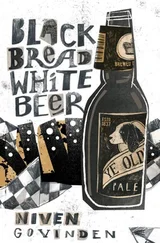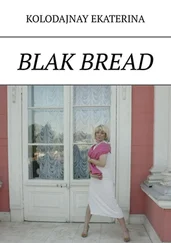Emili Teixidor - Black Bread
Здесь есть возможность читать онлайн «Emili Teixidor - Black Bread» весь текст электронной книги совершенно бесплатно (целиком полную версию без сокращений). В некоторых случаях можно слушать аудио, скачать через торрент в формате fb2 и присутствует краткое содержание. Год выпуска: 2016, Издательство: Biblioasis, Жанр: Современная проза, на английском языке. Описание произведения, (предисловие) а так же отзывы посетителей доступны на портале библиотеки ЛибКат.
- Название:Black Bread
- Автор:
- Издательство:Biblioasis
- Жанр:
- Год:2016
- ISBN:нет данных
- Рейтинг книги:3 / 5. Голосов: 1
-
Избранное:Добавить в избранное
- Отзывы:
-
Ваша оценка:
- 60
- 1
- 2
- 3
- 4
- 5
Black Bread: краткое содержание, описание и аннотация
Предлагаем к чтению аннотацию, описание, краткое содержание или предисловие (зависит от того, что написал сам автор книги «Black Bread»). Если вы не нашли необходимую информацию о книге — напишите в комментариях, мы постараемся отыскать её.
Born in 1933,
's first novel,
, was published to tremendous acclaim in 1988, followed by several more which established him as one of Spain's greatest contemporary authors.
Black Bread — читать онлайн бесплатно полную книгу (весь текст) целиком
Ниже представлен текст книги, разбитый по страницам. Система сохранения места последней прочитанной страницы, позволяет с удобством читать онлайн бесплатно книгу «Black Bread», без необходимости каждый раз заново искать на чём Вы остановились. Поставьте закладку, и сможете в любой момент перейти на страницу, на которой закончили чтение.
Интервал:
Закладка:
Grandmother never gave a straight answer: “Ohh!” she’d say: “Not so many come these days. It was a daily procession after the war. Men as well, to be sure.”
They asked about Aunt Enriqueta, but Grandmother acted as if she’d not heard and carried on chatting: “The fact is that nobody can eat the black bread they give out as rations. Once a hapless woman came with a crust of that horrible bread so I could taste for myself what they were forced to eat. I almost wept, it was like a lump of coal or dirty sawdust. I just thought how war can even destroy bread, can even murder bread, because that was no kind of bread, it was bread that had died and been stripped of its soul and goodness. I kept that piece of black bread, I didn’t dare throw it away, and put in by the feet of the Virgin Mary on the sitting-room sideboard, to see whether those up above might work a miracle like the one at that wedding when Jesus turned water into wine because his mother asked him to, though he’d not noticed the wine had run out and that the guests were drinking anything they could lay their hands on, but heaven seems to be turning a blind eye, apparently we don’t deserve a miracle.”
Dressed like a shepherdess and looking like an actress in her hat, enclosed in a bell jar on the sideboard, the Virgin Mary always had something placed at her feet by Grandmother or Aunt Ció, especially unusual stones, smooth pebbles from the stream, withered flowers, bits of tallow candle, tops of Easter candles, religious prints and funeral mementoes, but we’d never noticed the piece of black bread Grandmother had mentioned. What we had all seen was the way Grandmother rushed to pick up any piece of bread that fell on the floor and put it back on the table, or the way she kissed the drawer. And when she collected up the napkins after a meal, she and Aunt Ció were very careful not to let a single crumb fall on the floor; they emptied them all into a bowl and used them to make soup or mixed them into our breakfast milk, to make a milky gruel.
As the clerics again asked after Enriqueta, Grandmother finally had to respond: “Enriqueta seems very frivolous, but in fact she never gets involved with anyone. I don’t know why people gossip so much about seamstresses, especially those who work for men. It’s all idle talk, you know, all those hours spent with hands at work, and mouths free to…”
“So what about Quirze?” inquired the parish priest.
“Dad Quirze can’t keep up with his work. He’s run off his feet. However, he does rest a bit on Sundays. He even finds the time to make it to your monastery, isn’t that right, Father Tafalla?”
The Father Superior nodded, though he didn’t glance at the parish priest and tried to bring the conversation back to the subject of the nicknames for local farmhouses.
“Sundays are sacred,” said Grandmother, “but, dearie me, not at harvest time, that will soon be upon us, when people do work on Sundays, you know, they only stop when it’s raining, or if it’s soaking, when the straw clogs up the machine and the men can’t do a thing.”
The priest also took an interest in me and Cry-Baby, the refugees, as he called us, and in our parents. He said my mother was reputed to be upstanding and hard-working, that’s what he’d heard from the priest in my town, a worker much esteemed in her textile factory who had handled the situation she found herself in with exemplary resignation: God was putting her to the test, perhaps it was a penitence that would allow the whole family to purge the excesses of the past. He barely mentioned Cry-Baby’s parents, simply said it was strange we’d had no news of them for so long.
“The two brothers are quite different cases,” declared the priest. “And the fact that Fonso and Mites fled attested to their guilt. Let’s hope that God can forgive them.”
He said “attested” and that was the first time I’d heard that word, which not even Grandmother used, perhaps she wasn’t aware it existed, and I was also shocked that God would put people who didn’t believe in him through such hard tests. How could he ever expect to convince them of his existence and his acclaimed goodness if he hounded them like that?
These thoughts came to me quite spontaneously, prompted by remarks made by grownups. I myself was quite shocked and never mentioned them because I recognized that they were tiny seeds of evil now sprouting within me, the evil I’d been warned about in catechism classes, against which the priests told us to be on our guard, the evil that sullied everything, the accursed evil that never gave up and even penetrated our brains and burrowed away into our most private selves, into our thoughts, dreams, desires, plans, hopes, memories…anything might harbour the worm of evil that rotted the roots of the deepest, most invisible things.
Such thoughts were proof of the existence of evil and I’d found the way to rid my mind of them. I let them take shape so I knew exactly what they said they were like and were after…, and then I riposted with the formula I had learned in class or from doctrine, as written in the bishopric’s catechism they made us learn by heart. When these evil thoughts surfaced, I classified them according to the doctrine I had learned, the commandments of God’s Law, the commandments of the Church, and the sins that called out for God’s or heaven’s vengeance, that I really didn’t understand, and all that made me imagine a vengeful, scheming God who was extremely clinical in his punishments, especially those that called for revenge, new sins that had apparently been added to the old traditional ones, because men had found evil ways that went beyond the original ten precepts, and these commandments that aroused God’s anger were deliberate murder, impure sinning against nature, not paying workers their proper rate, not paying the church its tithes and quota from the harvest…and one or two others I don’t remember, perhaps belonging to a category deemed to be against the Church. If I couldn’t find a rule to counter my thoughts, to placate my inner voice, I told myself they were facetious, frivolous and trivial and couldn’t be sins. However, I couldn’t for the life of me fathom why all-powerful, almighty God wanted men to believe who weren’t so inclined. Why did he persecute non-believers like that? Why did he set his priest-hounds on them threatening eternal damnation in hell? Why couldn’t God’s glory shine equally brightly without requiring the submission of those ignorant simpletons who said they only believed in what they could see and thought priests were a gang of charlatans? Why did God need those incredulous people? Weren’t they free to damn themselves? I couldn’t find an answer to all that, and told myself I couldn’t understand because if I could, I would be as intelligent as God, and that was unthinkable, pride comparable to the devil’s, to darkest Satan’s, and that was why I might allow myself such thoughts, because they were the clearest proof of my mediocrity, of the superiority of divine intelligence. And all that made me wary, pensive, cautious, ingenuous, in a word: cowardly. God had vanquished in the war by helping those who had fought in his name, and the non-believers who had burnt temples and mocked his laws had lost and were now persecuted, imprisoned, vilified and blacklisted. Could one ask for clearer proof of his omnipotence?
When we accompanied the priest and the Superior up to the alcove, we found Cry-Baby sunk in Grandmother’s big bed, the whole room full of the vapours and scents from infusions and every small table and chest of drawers strewn with glasses and jugs of herbal waters and boxes of medicine.
Cry-Baby looked frightened, her face wan and pale, her eyes damp and feverish surrounded by dark bluish circles, her hair a dishevelled mess over the huge pillow, her nose peeping out from beneath the turn of the sheet. Cry-Baby was so timid, so impressionable and susceptible that she believed everything she was told and never doubted for a moment: when we said she’d got very thin, every bit of food began to disgust her, if we said she seemed deaf, she made us repeat what we’d said three or four times, and when people said she was ill, her temperature immediately rocketed as if it had been waiting for the order to do just that.
Читать дальшеИнтервал:
Закладка:
Похожие книги на «Black Bread»
Представляем Вашему вниманию похожие книги на «Black Bread» списком для выбора. Мы отобрали схожую по названию и смыслу литературу в надежде предоставить читателям больше вариантов отыскать новые, интересные, ещё непрочитанные произведения.
Обсуждение, отзывы о книге «Black Bread» и просто собственные мнения читателей. Оставьте ваши комментарии, напишите, что Вы думаете о произведении, его смысле или главных героях. Укажите что конкретно понравилось, а что нет, и почему Вы так считаете.












